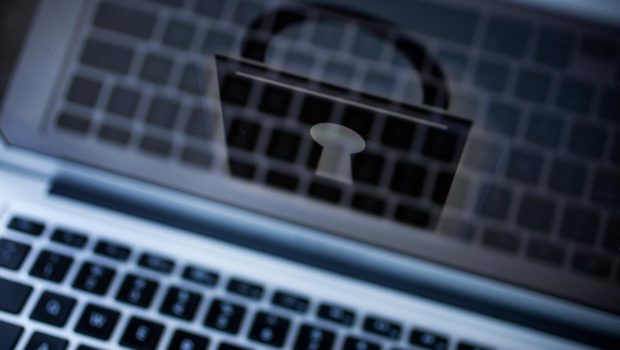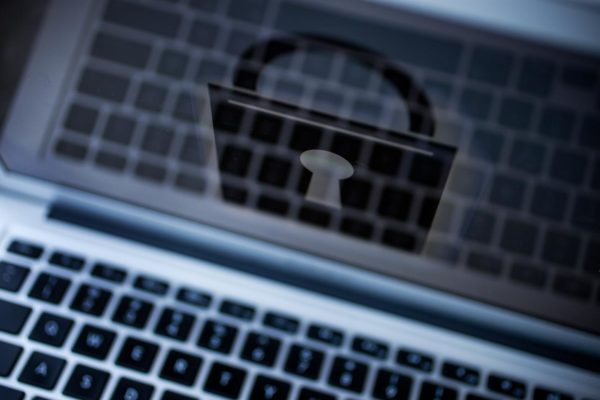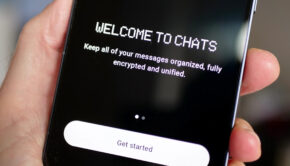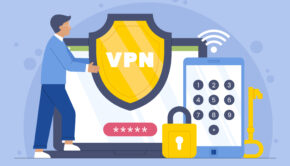Connected Online – Is Your Privacy At Stake?
We perceive and experience our day-to-day lives through technology today. An example of this is our smartphones which were a technological rarity in the past but are now a business-oriented tool and the center of our personal and recreational lives.
Why Privacy is an Issue
The Digital Age (a.k.a. the “Information Age,” “New Media Age,” “Computer Age”) has afforded us a lot of great benefits, including convenient shopping. However, it’s also given us a major reason to be concerned about our privacy and security. While we send and receive a lot of innocuous information that’s of nominal importance, we also do this with a lot of sensitive data too. For instance, researchers found that in 2016 62% of Americans managed their finances online instead of in person. As such, a lot of credit card and loan applications were sent, which included checking balances and credit reports every day. This includes things like your address, birth date, and Social Security number. When we exchange this information, we take for granted that our sensitive information travels securely without any interference. However, a lot of this is unfortunately misused online today. Simply looking at recent news reports, we can see that this safety isn’t guaranteed.
The possibility of getting hacked, having someone steal your sensitive information, and having your identity stolen are now things we need to be prepared for. Unfortunately, these are things that most people don’t give a lot of thought to and hence they don’t take steps towards protecting their digital livelihoods. In fact, most people only take steps like these once they’ve been a victim of a cyber attack like hacking.
None of this stops people from going online and conducting these activities though. For instance, in 2017 Americans spent over $780 billion in mobile payments via smartphones, tablets, and other portable devices. With this increased frequency in using mobile shopping apps and in-app purchases this figure is expected to grow. Peer-to-peer payment services like Paypal and the popularization of stores like Amazon and eBay are also adding to this. For this reason, experts believe this financial figure will surpass $1 trillion by the end of 2019.
Why Security Isn’t a Priority
Increasing security is a logical solution to the issue of privacy in a day and age when cyber security threats have spammed the internet. There are several things you can do here – adopt a complex password that isn’t in the dictionary, using two-factor authentication, implementing firewalls, and taking advantage of biometric security protocols. Unfortunately, most people don’t do any of these things until it’s too late.
People aren’t accustomed to seeing many of the hacks we’re witnessing today. In the past these weren’t an issue in the early days of the Digital Age and if they were, they weren’t this big of an issue. For instance, in 1995 hackers weren’t commandeering other people’s Google, Twitter, or Facebook accounts or stealing their passwords because these accounts didn’t exist. Another logical target that cyber criminals are taking aim at today is the cloud. In 2018 this has become a logical target for hackers who really want to get their hands on your data. This is a clear example of how ever-changing technology also has ever-changing threats that are different from 10 years ago and different from what we’ll see in 10 years too. It also demonstrates how cyber criminals are in this “game” for the long hall, which makes it interesting to watch develop too.
Most people also prioritize convenience over security. Fingerprint sensors and facial recognition are more accessible and mainstream today, but they also add more steps to the login process. For instance, you’ll need to provide your password to trigger an email or SMS message with a temporary code. You need to provide this code as your follow-up password – additional proof of your identity before you can gain access to your account. This only takes a few extra moments, but it requires sacrificing some convenience in turn for a greater level of security.
Making Changes for the Better
There are many comparisons between the Digital Age (a.k.a. Digital Revolution) and the Industrial Revolution. While the Industrial Revolution helped introduce the extensive use of machinery and mass-production the Digital Revolution is marking the shift from mechanical machinery to digital technology. Additionally, the Digital Revolution is introducing new technology that make things like circuit boards, computers, and the Internet commonplace. These are all changes for the better.
As we carry around our smartphones and other devices that make all this possible, we also need to make privacy changes for the better too. We can’t afford to exist in a bubble where we believe that we’ll never fall victim to a cyber attack. In fact, cyber criminals are more likely to attack people with this attitude because those who’d be obvious targets are usually better prepared than those who think a cyber attack would never happen to them. This leaves the average person open to more attacks, breaches of privacy, and making them easy targets overall.
Fortunately, cyber security methods are growing more robust today. However, at the same time hacking methods are growing more advanced as well. This is something we can’t afford to overlook because in doing so we’re essentially denying the fact that today’s hackers are more experienced, organized, and have more money than in the past. All of this helps make these attacks more efficient since the criminals behind them are finding it easier to find the chinks that exist in digital armor today.
In a day and age when more than 77% (three-quarters) of Americans currently own and use a smartphone taking these things serious isn’t something we can easily overlook. It doesn’t matter if you’re using an Android, iOS, or Windows smartphone it’s important to take these security issues seriously. We can’t overlook how helpful they can be in accessing the Internet, facilitating seamless communication, and making purchases but taking steps to protect ourselves needs to be an integral part of this too.

















